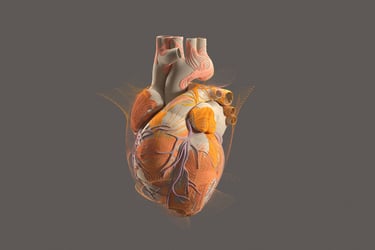eStoreRx™
Online Supplement Dispensary
eStoreRx™ is an easy direct-to-patient ordering & fulfilment program for lifelong wellness.
For over 40 years, Biotics Research Corporation has revolutionized the nutritional supplement industry by utilizing “The Best of Science and Nature”. Combining nature’s principles with scientific ingenuity, our products magnify the nutritional
eStoreRx™ is an easy direct-to-patient ordering & fulfilment program for lifelong wellness.
Biotics Research is proud to expand our commitment to education with the Wellness Unfiltered Pro Podcast. Each episode delves into key health topics and the clinical applications of our premier products. Through candid, insightful conversations, our team offers practical guidance to keep you informed and empowered as a healthcare professional.
February 26 2026
A study published recently in the Journal of Cachexia, Sarcopenia and Muscle raises concerns about a possible side-effect of long-term statin drug use...
 A study has found that the sex hormone estrogen may have a negative impact on heartbeat regulation, according to an experimental study published in the journal, Science Advances. The study explored the reason why women are more likely to suffer from long-QT syndrome (LQTS), where changes in the heart’s electrical system lead to potentially life-threatening arrhythmia.
A study has found that the sex hormone estrogen may have a negative impact on heartbeat regulation, according to an experimental study published in the journal, Science Advances. The study explored the reason why women are more likely to suffer from long-QT syndrome (LQTS), where changes in the heart’s electrical system lead to potentially life-threatening arrhythmia.
Research shows us that the heart's electrical activity is regulated by small pores, or ion channels, that go through the cell's membranes and regulate the flow of electrically charged ions in and out of the cell. Some ion channels act as an accelerator and others as a brake. Together, they regulate our heartbeat throughout life.
In LQTS patients, the heart takes longer than normal to finish every heartbeat. This syndrome is most often due to a congenital hereditary change, or mutation, affecting one of the heart's ion channels.
Previous studies show that estrogen seems to interact with hereditary changes causing a heart disease disturbing the heart's rhythm, while other endogenous substances may have a protective effect. When it comes to congenital LQTS in particular, more than 300 mutations in the genes KCNQ1 and KCNE1 have been linked to the condition.
And as far as endogenous substances that may have a protective effect are concerned, research has shown that progesterone and testosterone may have QT-shortening effects.
However, many aspects of how sex hormones modulate cardiac ion channels remain unknown.
In this study, the researchers aimed to explore the possible effects of the sex hormone estrogen. Women are not only more often affected than men, but also more severely affected by certain hereditary diseases causing an abnormal heart rhythm, or arrhythmia.
In their study, the researchers studied the type of ion channel most often mutated in LQTS, which is called Kv7.1/KCNE1. Reduced function of this ion channel is a risk factor increasing the risk of arrhythmia. In order to understand estrogen’s impact on this specific ion channel, the researchers inserted the human variant of the ion channel into frogs' eggs, which don’t have this ion channel. The researchers added the most active form of the sex hormone estrogen, estradiol, and measured ion channel function.
The results showed that the ion channel function was hampered by estrogen, which the researchers interpret as an indication that estrogen may increase the risk of certain types of arrhythmia. Other sex hormones had no effect.
The researchers also found out exactly which parts of the channel were impacted by estrogen by further examining ion channel mutations found in families with hereditary arrhythmia syndromes. Some mutations led to high estrogen sensitivity, while others led to the ion channel completely losing estrogen sensitivity.
The researchers state that in women with a hereditary increased risk of LQTS, estrogen could possibly be a risk factor. And what’s more, endogenous factors such as estrogen and endocannabinoids are worth studying further study in humans, as this may lead to ways of increasing endocannabinoid levels to counteract arrhythmia.
Submit this form and you'll receive our latest news and updates.
*These statements have not been evaluated by the Food and Drug Administration. This product has not intended to diagnose, treat, cure, or prevent any disease.
© 2025 Biotics Research Corporation - All Rights Reserved
Submit your comment